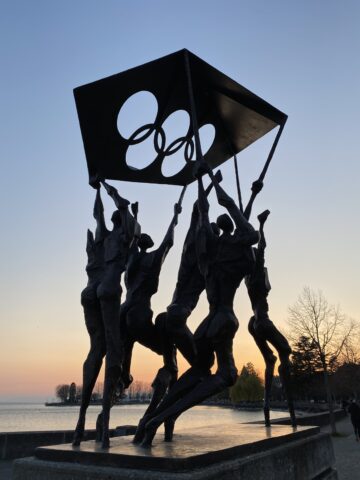A. v. IFAF, USA Football, Football Canada et al. – Election dispute – Ultra Petita
4A_284 / 2018, Judgment of October 17, 2018, Appeal against the arbitral award of the Court of Arbitration for Sport (CAS) of March 1, 2018 (CAS 2017/O/5025).
The dispute: elections within an International Sports Federation based in France
This is an election dispute within the International Federation of American Football (IFAF) based in France related to its former president (Mr. Tommy Wiking, the Appellant). The CAS issued an award confirming that the Appellant resigned already in 2015 and thereafter his actions acting on behalf of IFAF were null and void and confirmed the valid election of another individual as the IFAF president. In his subsequent appeal to the Swiss Federal Tribunal, the Appellant invoked a number of grounds for the annulment of the CAS Award, including the violation of ne ultra / extra petita and the violation of his right to be heard.
Appeal to the Swiss Federal Tribunal: scope and limits of the ne ultra petita plea
On the ultra petita plea, the SFT reiterated its findings that there is no such violation if the panel assessed the claims in part or deviated from the claims, provided that its operative part is covered by the parties’ requests for relief (at 3.1). By the same token, a deviation from the wording of the requests or an interpretation of a legal request taking into account the relevant legal provisions does not violate ultra petita (at 3.3). The panel has therefore a fair amount of leeway in the way it formulates its operative part, particularly when the parties have not narrowed down the requests in such a way as to leave no options to the arbitral tribunal.

Right to be heard: no need for the Panel to address each argument raised by the Parties in an explicit manner
On the violation of the right to be heard, the SFT repeated that the panel does not need to address each argument raised by the parties in an explicit manner (at 4.5). In this respect, there is no violation if the panel failed to specifically mention an argument but implicitly took it into consideration (at 4.2 and 4.4).
Finally, with respect to the “effet de surprise” which forms part of the violation of the parties’ right to be heard, the panel found that there was no such violation to the extent that the Appellant himself filed a post-hearing letter whereby he expressed his objections with respect to the issue at stake (at 5.2).
Note: The full judgment is available in French at the website of the Swiss Federal Tribunal www.bger.ch. The English translations of the international arbitration decisions rendered by the Swiss Federal Tribunal (from French, German and Italian) are available on the website www.swissarbitrationdecisions.com , operated jointly by Dr. Despina Mavromati and Dr. Charles Poncet as a service to the international arbitration community.





